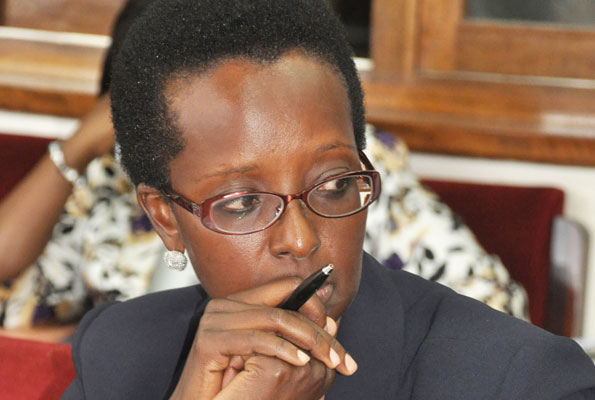President Yoweri Museveni has confirmed that the Uganda National Roads Authority (UNRA) is set to be dissolved and integrated into the Ministry of Works and Transport.
In a meeting with National Resistance Movement (NRM) MPs at State House Entebbe on Friday, Museveni expressed his frustration with UNRA, describing it as a financially burdensome entity.
According to sources, he criticized the agency for employing too many engineers who outsource projects instead of managing them directly.
Integration into Works Ministry a “Done Deal”
Museveni was firm in his stance, stating that UNRA’s merger into the Ministry of Works and Transport was a “done deal.”
He argued that the tasks currently managed by UNRA could be handled by a department within the ministry, eliminating the need for a separate, costly agency.
This decision came after Prime Minister Robinah Nabbanja requested that the UNRA debate be deferred along with other pending agency mergers.
However, Museveni insisted that UNRA’s dissolution was non-negotiable and would proceed as planned.
Parliamentary Opposition to UNRA Merger
Despite the President’s determination, the proposal to dissolve UNRA has faced significant opposition in Parliament. On April 23, legislators rejected the UNRA (Repeal) Bill, 2024, which sought to reintegrate the agency’s functions into the works ministry.
MPs defending UNRA’s autonomy highlighted the agency’s achievements, including the construction of 3,686 km of new paved roads over the past 15 years, averaging 230 km per year.
Importance of UNRA’s Autonomy
In a report presented by Dan Kimosho, then chairperson of the committee on physical infrastructure, MPs underscored UNRA’s critical role in developing and maintaining Uganda’s national roads infrastructure.
They argued that as a landlocked transit country, Uganda’s economic growth relies heavily on a well-managed road network, which UNRA has been instrumental in supporting.
The committee expressed concerns that dissolving UNRA and merging it with the works ministry would reintroduce past challenges, potentially delaying important road projects and necessitating future reforms to recreate the agency.
Concerns Over Job Security and Efficiency
Another major concern raised by MPs was the job security of UNRA staff. The committee noted that there were no guarantees of continued employment for UNRA employees if the agency were dissolved.
Speaker Anita Among, who chaired the session, highlighted the importance of retaining UNRA’s autonomy, with MPs unanimously supporting the agency’s continued existence.
Arguments for the Merger
However, Works Minister Gen. Katumba Wamala argued in favor of the merger, stating that integrating UNRA into the ministry would save the government UGX 39 billion monthly in wages.
He pointed out that UNRA’s wage bill far exceeds that of the works ministry, making the merger a cost-saving measure.
When the merger bill was initially sent to President Museveni, he declined to sign it, instead returning it to Parliament for further review and reaffirming his position that UNRA should be dissolved.
Disagreement Over Other Agency Mergers
The President and MPs also clashed over the proposed mergers of other agencies, including the Uganda Coffee Development Authority (UCDA), National Agricultural Advisory Services (NAADS), Cotton Development Organisation (CDO), and the Dairy Development Authority (DDA), into the Ministry of Agriculture, Animal Industry and Fisheries.
Museveni argued that these agencies had become inefficient and were draining government resources. However, MPs defended their roles, particularly highlighting UCDA’s success in boosting coffee exports from three million to 8.6 million bags annually.
Deferred Decisions and Ongoing Consultations
With disagreements persisting, the President and MPs agreed to defer further discussions on these mergers to allow for more consultations.
Chief Whip Denis Hamson Obua confirmed that the presentation of the Bills in Parliament would be postponed until these consultations are completed.
Rationale Behind the Mergers
The push for these mergers originates from a 2021 Cabinet decision aimed at rationalizing government agencies to reduce public expenditure and improve service delivery.
President Museveni has argued that consolidating these agencies could save the government UGX 1 trillion annually.
However, as the debate continues, the future of these agencies, including UNRA, remains uncertain.

